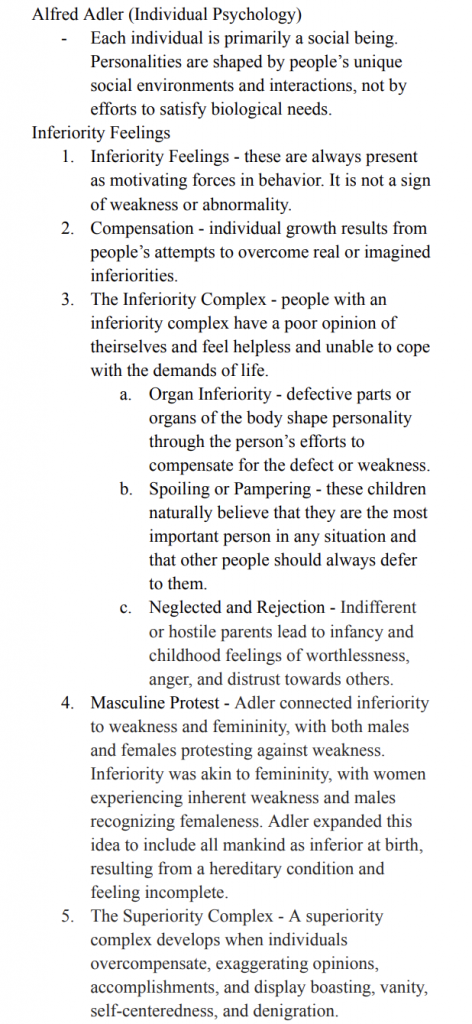Individual Psychology and Analytic Psychology
Summary:
Alfred Adler and Carl Jung, two notable psychologists, proposed theories that offer insights into human behavior and personality development. Adler’s Individual Psychology emphasizes that each person is a social being, with personalities shaped by unique social environments and interactions. Key elements of Adler’s theory are feelings of inferiority and superiority, influencing an individual’s behavior and personality development. These feelings may lead to compensatory behaviors or develop into complexes. Adler also identified different “styles of life” or unique behavior patterns that individuals use to pursue perfection.
On the other hand, Jung’s Analytical Psychology revolves around the integration of the psyche, composed of the ego, personal unconscious, and collective unconscious. The ego governs consciousness and will, while the personal unconscious contains complexes, and the communal unconscious houses universal archetypes. Jung identified attitudes and psychological functions that interact within the psyche, such as extraversion, introversion, sensing, thinking, intuiting, and feeling. Furthermore, Jung’s concept of the “self” represents the ultimate goal of life, striving for self-transcendence and unification of all aspects of personality.
Excerpt:
Individual Psychology and Analytic Psychology
Alfred Adler (Individual Psychology)
- Each individual is primarily a social being. Personalities are shaped by people’s unique social environments and interactions, not by efforts to satisfy biological needs.
- Inferiority Feelings
- Inferiority Feelings – these are always present as motivating forces in behavior. It is not a sign of weakness or abnormality.
- Compensation – individual growth results from people’s attempts to overcome real or imagined inferiorities.
- The Inferiority Complex – people with an inferiority complex have a poor opinion of themselves and feel helpless and unable to cope with the demands of life.
- a. Organ Inferiority – defective parts or organs of the body shape personality through the person’s efforts to compensate for the defect or weakness.
- b. Spoiling or Pampering – these children naturally believe that they are the most important person in any situation and that other people should always defer to them.
- c. Neglected and Rejection – Indifferent or hostile parents lead to infancy and childhood feelings of worthlessness, anger, and distrust towards others


Reviews